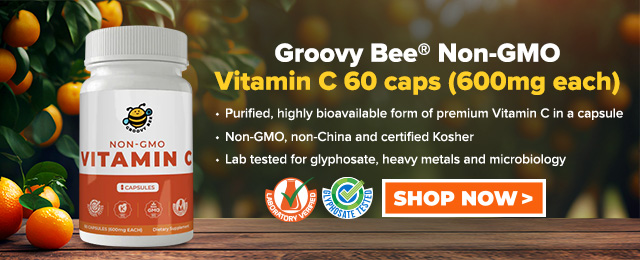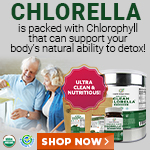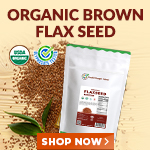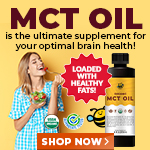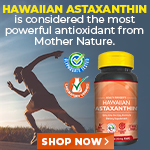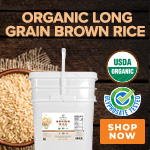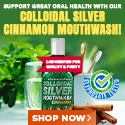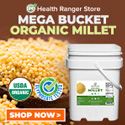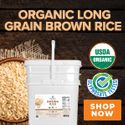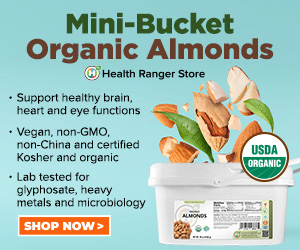
Natural Aromatase Inhibitors are Best Prevention of Breast Cancer in Postmenopausal Women
Monday, June 29, 2009 by: Barbara L. Minton
Tags: aromatase inhibitors, health news, Natural News
- Newly released JFK files reveal Pentagon's role in creating Lyme disease and covid in the same lab
- The hidden dangers in your kitchen: How cooking methods impact diabetes, cancer and aging
- DEADLY DECEPTION: How COVID vaccines increased mortality rates and why authorities hid the truth
- CDC finally halts $11 billion COVID funding scam as health officials admit the ‘pandemic’ was a fraud
- Arkansas embraces medical freedom with landmark ivermectin law
- Home gardening for preppers: A beginner's guide to growing your own food
- Lab leak confirmed? Boris Johnson's stunning reversal on COVID origins sparks global debate
- GAIN-OF-FUNCTION CAT-BIRD-FLU now on the rise as nearly a dozen cats in Colorado "test positive" for Bird Flu due to contaminated cat food
- Unraveling the paradox: Why intelligent individuals fall prey to everyday blunders
- Cartels shift tactics: Kidnappings and organ trafficking surge as border crossings plummet under Trump policies
- Why you should think twice before buying mainstream toothpaste formulas
- Was JFK's assassination orchestrated by a CIA double agent? New evidence points to James Angleton as the “architect”
- “Rent-a-womb” scandal: How China is exploiting U.S. birthright citizenship for long-term espionage
- Key nodes of Federal Government censorship
- Trump's greatest betrayal so far: Accelerating Middle East wars, silencing dissent, and serving Zionist masters
- ATTENTION PRESIDENT TRUMP: Please WITHDRAW your nomination of Dr. Susan Monarez for CDC Director as she is a VAX FANATIC and TOXIC JAB ZEALOT
- Record honeybee deaths devastate U.S. agriculture, pesticides under scrutiny
- Speaker Johnson warns Congress may defund or disband rogue courts targeting Trump
- Newly released JFK files reveal Pentagon's role in creating Lyme disease and covid in the same lab
- Elon Musk: Aliens could be here on Earth RIGHT NOW
- Festive flavors: The sweet history, nutritional profile and health benefits of pecan pie
- Trump reverses course on Gaza plan, says “nobody is expelling Palestinians”
- Reclaim your health: How midlife exercise reverses years of inactivity
- Big Pharma's $8 Billion bribery scheme exposed: how doctors are pushed to prescribe junk science, not heal
- Boys are back in town: Trump’s patriotic alpha crew takes the wheel while toxic females ride in the backseat
- EPA advisor admits the agency is funneling billions to climate groups ahead of Trump’s return to White House
- Space war brewing? Russia threatens to destroy Starlink satellites
- Survival 101: Effective EMF blocking techniques
- A lack of integrity in Academia: Harvard professor found GUILTY of fraudulent research to promote CRT theory
- Mike Adams Sermon 66: God will DESTROY ISRAEL for its wickedness
- 5 Simple steps to boost your brainpower: How to strengthen executive function in a distracted world
- Rep. Nancy Mace introduces bill to ban biological males from female facilities on federal property
- Sugarcane extract superior to cholesterol-lowering drugs?
- WHO focusing more on policing speech about public health and implementing global surveillance systems
- Pilots report mysterious lights 'moving at extreme speeds' across Oregon skies
- Dr. Mike Yeadon releases 15-minute testimony - WATCH - about genocidal intent of COVID “vaccines”
- EPA advisor admits the agency is funneling billions to climate groups ahead of Trump’s return to White House
- The Health Ranger releases “Vaccine Zombie” song and music video, using AI-animated zombies for the music video
- California's social media censorship law struck down: A victory for free speech or a threat to online safety?
- Dr. Mike Yeadon releases 15-minute testimony - WATCH - about genocidal intent of COVID “vaccines”
- The pandemic as a tool for INDOCTRINATION: Understanding “The Indoctrinated Brain” by Dr. Michael Nehls
- Florida takes a stand: DeSantis proposes permanent ban on mRNA vaccine mandates
- Mike Adams releases country western hit single: Goin’ Back in Time is Comin’ Home
- Mike Adams releases music poetry sensation: A Child of God
- “Why we influenced the 2020 elections”: Facebook files reveal the coordinated effort to bury the Hunter Biden laptop story
- RFK Jr. clears key hurdle: Sen. Susan Collins backs controversial HHS nominee, signaling a new era for health policy
- Unpacking the Lies That We’ve Been Fed – new song and music video released by Mike Adams, the Health Ranger
- Mike Adams releases new song and music video: Nothing More Disgusting Than a Globalist
- Newly released JFK files reveal Pentagon's role in creating Lyme disease and covid in the same lab
- Congratulations to the FULLY UNVACCINATED as you resisted the COVID-19 PROPAGANDA MACHINE fueled by over $100 BILLION
- Michigan sheriff announces criminal investigation into 2020 election crimes, Dominion Voting Systems
- Israeli soldiers accused of even more torture and abuse in the West Bank
- Migrants are taking advantage of recent hurricanes to scam residents and loot their homes
- House Intelligence Committee calls for the ARREST and PROSECUTION of Dr. Anthony Fauci
- Red Cross issues warning to stop blood plasma donations from vaccinated people
- Scientists confirm: GENIUS brain function can be spontaneously unleashed in humans without any apparent cause
- EPA advisor admits the agency is funneling billions to climate groups ahead of Trump’s return to White House
- HYSSOP: What research reveals about the health benefits of this ancient holy herb
- Two containers with completed ballots fall out of truck in Florida
- Fully vaccinated about to see “tsunami” of illness and death, warns virologist
- Global leaders unite to clamp down on “misinformation” with UN-backed Cascais Declaration
- BREAKING: 2025 NDAA authorizes mandatory military draft of WOMEN across America… as Pentagon pursues global NUCLEAR war with both Russia and China at the same time
- Michael Yon warns of a ZIONIST TAKEOVER in Trump’s second administration
- BOMBSHELL: DNA testing kits are a SCAM to develop ethnic-specific bioweapons
- Ozempic and Wegovy weight loss drugs are injectable LIZARD VENOM PEPTIDES that may unleash a devastating wave of organ failure… side effects align with symptoms of SNAKE BITES
- Israeli soldiers accused of even more torture and abuse in the West Bank
- These 13 countries just signed an agreement to engineer a global FAMINE by destroying food supply
- NASA admits that climate change occurs because of changes in Earth’s solar orbit, and NOT because of SUVs and fossil fuels
- RFK Jr. clears key hurdle: Sen. Susan Collins backs controversial HHS nominee, signaling a new era for health policy
- Sermon 30: How Jesus reveals Caesar’s FAKE CURRENCY and FALSE AUTHORITY
- Coriander seeds: Ancient medicine backed by modern science
- Arizona officials claim Maricopa County needs 10-13 days to tabulate results of the election
Estrogen receptors (ER) alpha and beta are proteins found inside certain healthy cells of breast tissue. Estrogen binds with these receptors to stimulate tissue growth in young women during normal breast development. As women age these receptors play an important role in the development of breast cancer because they can continue to bind with excessive estrogen produced in breast tissue through the aromatization process, even after the ovaries no longer produce much estrogen. This can lead to the rapid growth and proliferation of mutated breast cells. If the process of aromatization is inhibited, excess estrogen will not be present in breast tissue to stimulate the growth of a cancer.
In a study designed to determine the effectiveness of aromatase inhibitors compared with anti-estrogen drugs, the German scientists analyzed 21 human breast cancer tissue samples for a change in the ER alpha /ER beta ratio during the malignant progression of breast cancers. They found that the transition from normal breast cells to grade 1 tumors was characterized by the down-regulation of ER beta, while the transition from grade 1 to grade 3 tumors was associated with the decrease in ER alpha expression. In stimulation assays they found that anti-estrogen drugs such as tamoxifen increased ER alpha expression and left ER beta unchanged. In contrast, aromatase inhibitors up regulated ER beta, and by doing so, blocked the initiation of cancer. (Anticancer Research, June)
Nature has provided an abundance of aromatase inhibitors
You don't have to take drugs to inhibit aromatase. Nature has provided plants that will get the job done without harmful side effects. In April, Natural News ran an article about the powerful aromatase inhibiting ability of chrysin (https://www.naturalnews.com/026086.html), a flavonoid from the passion flower plant. Research showed that chrysin worked as well to inhibit the aromatase enzyme as a drug designed for that purpose. Chrysin is normally taken as a supplement along with piperine which greatly enhances its bioavailability.
For those who would rather get their aromatase inhibiting flavonoids from whole foods, there are several good tasting choices. Beneficial compounds gotten from food have the added benefits of the perfect synergy found in a whole food as well as the other nutrients and compounds it contains.
Quercetin, naringenin, resveratrol, apigenin, genistein, and oleuropein are all powerful flavonoids from whole foods that inhibit aromatase while at the same time offering a treasure chest of other health benefits. When these foods are organically grown, they are higher in these flavonoids than produce grown conventionally.
Quercetin is the main reason an apple a day keeps the doctor away. It is a major antioxidant with important anti-aging benefits. It fights inflammation and reduces the cellular damage inflammation causes. By fighting inflammation, it also helps decrease swelling and pain, and keeps the circulatory system healthy. Quercetin helps prevent fatigue by helping to decrease damage from heavy exercise, and increase endurance. It is an anti-viral, and an immune system supporter and liver protector. Research has suggested that quercetin has other anti-cancer benefits aside from inhibiting aromatase in breasts and prostates. Cabbage, onions and garlic are other good sources of this powerful flavonoid.
Apigenin is a non-mutigenic flavonoid that has significant chemoprotective action against UV radiation. Research has shown apigenin reduces oxidative damage of DNA, inhibits the growth and induces differentiation in human leukemia cells, inhibits cancer cell transduction, and induces appropriate cell death. Like quercetin, apigenin acts as an anti-inflammatory and as an antispasmodic. Apigenin is found in good supply in celery, parsley, artichokes, basil, and chamomile.
Naringenin, is an antioxidant, free radical scavenger, anti-inflammatory, and immune system modulator. It has been shown to promote proper metabolism of carbohydrates. It was shown to reduce hepatitis C virus production by infected liver cells in cell culture and to inhibit the secretion of very low density lipoprotein by cells. As a cancer fighter, it reduces oxidative damage to DNA. Naringenin is found in all citrus and may be the reason that diets high in citrus are negatively correlated with heart disease. However, naringenin should not be obtained from grapefruit or grapefruit juice, which has an inhibitory effect on the human cytochrome P450 isofrom, another enzyme in the same complex as the aromatase enzyme. This enzyme is involved in breaking down and metabolizing sex hormones and preventing their excess accumulation in the body, so inhibiting it is not a good idea.
Resveratrol is a flavonoid gaining wide respect for its multitude of health benefits. Several recent research studies have revealed that resveratrol is highly effective against breast cancer by inhibiting ER positive and negative cell proliferation, cell cycle progression, and primary breast tumor growth. Resveratrol is protective of the liver even against alcohol. It also keeps the central nervous system strong by protecting neurons from oxidative stress. Resveratrol is found to some degree in the skin and seeds of red grapes. Muscadine grapes have the largest content and are often used to make red wine. Although supplements of resveratrol are popular and widely available, getting resveratrol from red wine allows you to get the entire grape polyphenol group of nutrients, a group that has been shown to work much better synergistically. Breast tumor growth and metastasis to bone and liver were shown to be better inhibited by the complete grape polyphenol complex.
Oleuropein gives olive oil its distinctive flavor and is found in abundance in the leaves of the olive tree. It is one of the reasons olive leaf is such a powerful tool for wellness. Oleuropein helps the body fight off viruses, bacteria, and fungi. It is contained in every part of the olive tree and is the basis of its defense from insects. Oleuropein has been shown to boost the immune defense of people too, as well as fostering a healthy balance between friendly bacteria in the intestinal tract. In animal research, oleuropein was shown to enhance nitric oxide production. It is also a potent antioxidant and anti-inflammatory.
All these foods are prominent features of the Mediterranean diet
Fresh fruits, vegetables, olive oil and red wine are components of the Mediterranean diet, the one and only diet that has consistently correlated with lower death rates from all causes. Flavonoids from each of these foods inhibit aromatase activity to reduce incidence of breast cancer. And when you chose a diet that features these foods on a regular basis, what you are really getting is the best all around prevention plan on earth.
For more information:
http://www.lef.org/abstracts/codex/apigenin_...
http://en.wikipedia.org/wiki/Naringenin
https://www.naturalnews.com/025931_wine_red_w...
http://www.health-science-report.com/alotek/...
https://www.naturalnews.com/023346_mediterran...
About the author
Barbara is a school psychologist, a published author in the area of personal finance, a breast cancer survivor using "alternative" treatments, a born existentialist, and a student of nature and all things natural.Aromatase inhibitors at FETCH.news
Get independent news alerts on natural cures, food lab tests, cannabis medicine, science, robotics, drones, privacy and more.
Take Action: Support Natural News by linking to this article from your website
Permalink to this article:
Embed article link: (copy HTML code below):
Reprinting this article:
Non-commercial use OK, cite NaturalNews.com with clickable link.
Follow Natural News on Facebook, Twitter, Google Plus, and Pinterest
Science News & Studies
Medicine News and Information
Food News & Studies
Health News & Studies
Herbs News & Information
Pollution News & Studies
Cancer News & Studies
Climate News & Studies
Survival News & Information
Gear News & Information
News covering technology, stocks, hackers, and more



"Big Tech and mainstream media are constantly trying to silence the independent voices that dare to bring you the truth about toxic food ingredients, dangerous medications and the failed, fraudulent science of the profit-driven medical establishment.
Email is one of the best ways to make sure you stay informed, without the censorship of the tech giants (Google, Apple, Facebook, Twitter, YouTube, etc.). Stay informed and you'll even likely learn information that may help save your own life."
–The Health Ranger, Mike Adams











